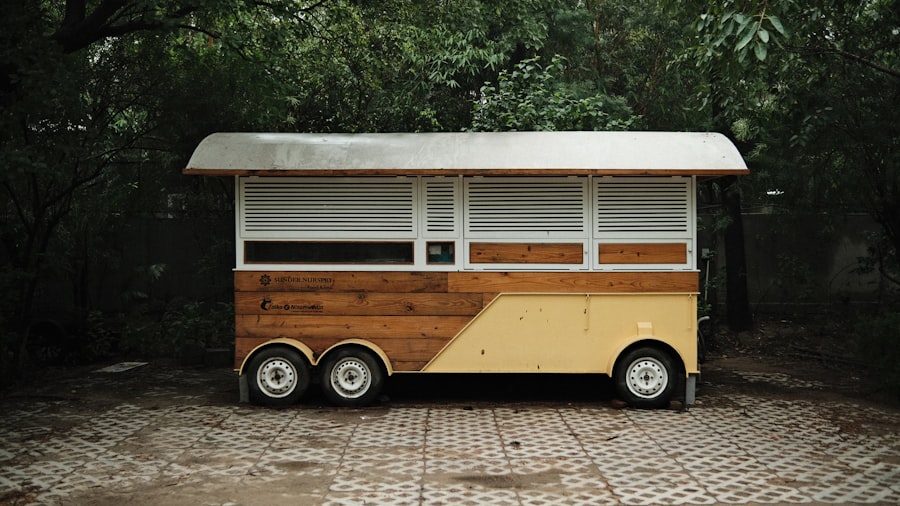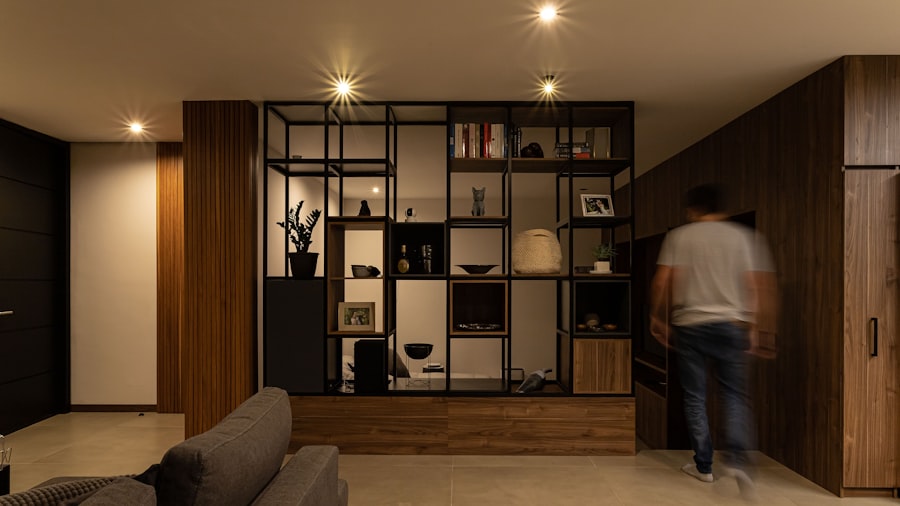When embarking on the journey to purchase a mobile home, the first step is to gain a clear understanding of your needs and budget. This involves a thorough assessment of your lifestyle, family size, and long-term goals. For instance, if you have a growing family, you may require a larger mobile home with multiple bedrooms and bathrooms.
Conversely, if you are a single individual or a couple, a smaller unit may suffice. Additionally, consider your daily routines and how they might influence your choice of layout and space. Do you work from home?
If so, a designated office space could be essential. Budgeting is equally crucial in this process. Establishing a realistic financial plan will help you navigate the myriad of options available in the mobile home market.
Take into account not only the purchase price of the mobile home but also ongoing costs such as property taxes, insurance, utilities, and maintenance. It’s advisable to create a comprehensive budget that includes a buffer for unexpected expenses. This financial foresight will empower you to make informed decisions and avoid potential pitfalls that could arise from overspending or underestimating costs.
Key Takeaways
- Assess your needs and budget before starting your mobile home search.
- Research different mobile home communities to find the best fit for your lifestyle.
- Collaborate with a knowledgeable realtor experienced in mobile homes.
- Carefully inspect homes and evaluate features, amenities, and financing options.
- Negotiate effectively, finalize the purchase, and plan your move-in smoothly.
Researching Mobile Home Communities
Once you have a clear understanding of your needs and budget, the next step is to research mobile home communities. The location of your mobile home can significantly impact your quality of life, so it’s essential to consider factors such as proximity to work, schools, healthcare facilities, and recreational areas. Some communities are designed for specific demographics, such as retirees or families, which can influence the atmosphere and amenities available.
In addition to location, it’s important to investigate the reputation of the mobile home community itself. Look for reviews and testimonials from current residents to gauge their satisfaction with the management and overall living conditions. Some communities may offer amenities such as swimming pools, clubhouses, or organized social activities that can enhance your living experience.
Furthermore, consider the rules and regulations of the community; some may have restrictions on pet ownership or modifications to homes that could affect your lifestyle choices.
Working with a Realtor

Engaging a realtor who specializes in mobile homes can be an invaluable asset in your home-buying journey. A knowledgeable realtor will have insights into the local market trends, pricing strategies, and available listings that align with your needs. They can help you navigate the complexities of mobile home transactions, which can differ significantly from traditional real estate purchases.
For example, they can assist in understanding the nuances of land leases versus owning the land outright. Moreover, a realtor can provide guidance on negotiating offers and navigating potential pitfalls during the buying process. Their expertise can save you time and money by ensuring that you are making informed decisions based on current market conditions.
Additionally, they can facilitate communication between you and sellers or community managers, streamlining the process and alleviating some of the stress associated with purchasing a mobile home.
Considering Mobile Home Features and Amenities
| Feature/Amenity | Description | Importance Level | Typical Availability |
|---|---|---|---|
| Square Footage | Total living space inside the mobile home | High | Varies (400 – 1500 sq ft) |
| Number of Bedrooms | Count of separate sleeping rooms | High | 1 to 4 bedrooms |
| Number of Bathrooms | Count of full and half bathrooms | Medium | 1 to 2 bathrooms |
| Kitchen Features | Includes appliances, counter space, and storage | High | Standard appliances, some upgraded options |
| Heating and Cooling | Type of HVAC system installed | High | Central AC and furnace common |
| Storage Space | Closets, cabinets, and external storage options | Medium | Limited but varies by model |
| Exterior Features | Porches, decks, skirting, and siding materials | Medium | Basic to upgraded options available |
| Energy Efficiency | Insulation, windows, and energy-saving appliances | High | Increasingly common in newer models |
| Accessibility | Features like ramps and wider doorways | Low to Medium | Optional or custom additions |
| Community Amenities | Pools, playgrounds, clubhouses in mobile home parks | Medium | Varies by community |
When evaluating mobile homes, it’s essential to consider the features and amenities that will enhance your living experience. Mobile homes come in various sizes and layouts, from single-section units to larger double-wide models. Think about how each layout aligns with your lifestyle; for instance, an open floor plan may be ideal for entertaining guests, while a more compartmentalized design might offer greater privacy for family members.
Beyond layout, pay attention to the quality of construction and materials used in the mobile home. Features such as energy-efficient appliances, modern insulation, and durable flooring can significantly impact your comfort and utility costs over time. Additionally, consider any outdoor space that comes with the home; a yard or patio can provide valuable recreational space for families or pets.
Amenities within the community—such as fitness centers, parks, or social clubs—should also be factored into your decision-making process as they contribute to your overall quality of life.
Inspecting and Evaluating Mobile Homes
Before finalizing any purchase, conducting a thorough inspection of the mobile home is imperative. This step ensures that you are aware of any potential issues that could lead to costly repairs down the line. A professional inspector who specializes in mobile homes can identify structural problems, plumbing issues, electrical concerns, and other critical factors that may not be immediately visible to an untrained eye.
During the inspection process, pay close attention to both the interior and exterior of the home. Check for signs of water damage, mold growth, or pest infestations that could compromise the integrity of the structure. Additionally, evaluate the condition of appliances and fixtures; outdated or malfunctioning systems may require replacement soon after purchase.
By investing time in this evaluation phase, you can make an informed decision about whether to proceed with the purchase or negotiate repairs with the seller.
Understanding Mobile Home Financing Options

Financing a mobile home can differ significantly from traditional home loans due to various factors such as whether the home is classified as personal property or real estate. Understanding these distinctions is crucial for securing appropriate financing options. For instance, if you are purchasing a mobile home on leased land, it may be considered personal property, which typically requires different loan types than those used for real estate purchases.
There are several financing avenues available for mobile home buyers. Conventional loans are one option; however, they often require that the mobile home be affixed to a permanent foundation and classified as real estate. Alternatively, chattel loans are specifically designed for mobile homes that remain personal property; these loans usually come with higher interest rates but may be more accessible for buyers without substantial down payments.
Additionally, government-backed loans through programs like FHA or VA can provide favorable terms for eligible buyers. Understanding these options will empower you to choose the best financing solution for your situation.
Negotiating the Purchase
Negotiation is a critical component of any real estate transaction, including mobile homes. Once you have identified a suitable property and completed your inspections, it’s time to make an offer. Your realtor can play an essential role in this process by providing insights into comparable sales in the area and helping you determine a fair offer price based on market conditions.
When negotiating, be prepared to discuss not only the price but also other terms such as closing costs, repairs needed before closing, or even including certain appliances or furniture in the sale. Flexibility can be beneficial; if the seller is unwilling to lower the price significantly but is open to covering closing costs or making repairs, this could still result in a favorable deal for you. Effective negotiation requires clear communication and an understanding of both parties’ needs; being respectful yet assertive can lead to successful outcomes.
Closing the Deal and Moving In
The final step in purchasing a mobile home is closing the deal and preparing for your move-in day. Closing involves signing various legal documents that finalize the sale and transfer ownership from the seller to you. It’s essential to review all documents carefully before signing; ensure that all agreed-upon terms are accurately reflected in the paperwork.
Once closing is complete, it’s time to plan your move-in strategy. Consider logistics such as hiring movers or renting a truck if necessary. Additionally, take time to familiarize yourself with your new community; meeting neighbors and exploring local amenities can help ease the transition into your new home.
Setting up utilities and services ahead of time will also ensure that you have everything ready for a smooth move-in experience. Embracing this new chapter in your life with enthusiasm will help you settle into your mobile home comfortably and enjoyably.



